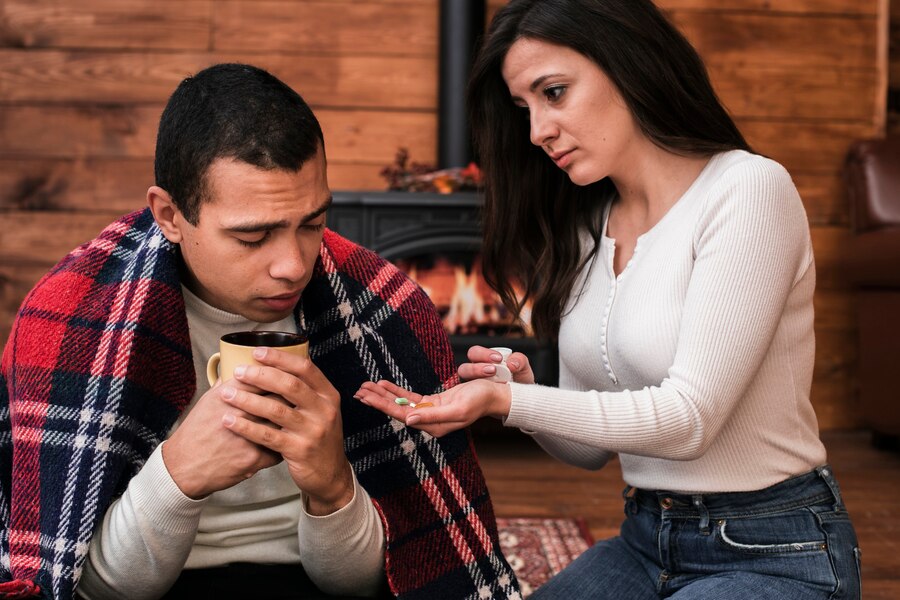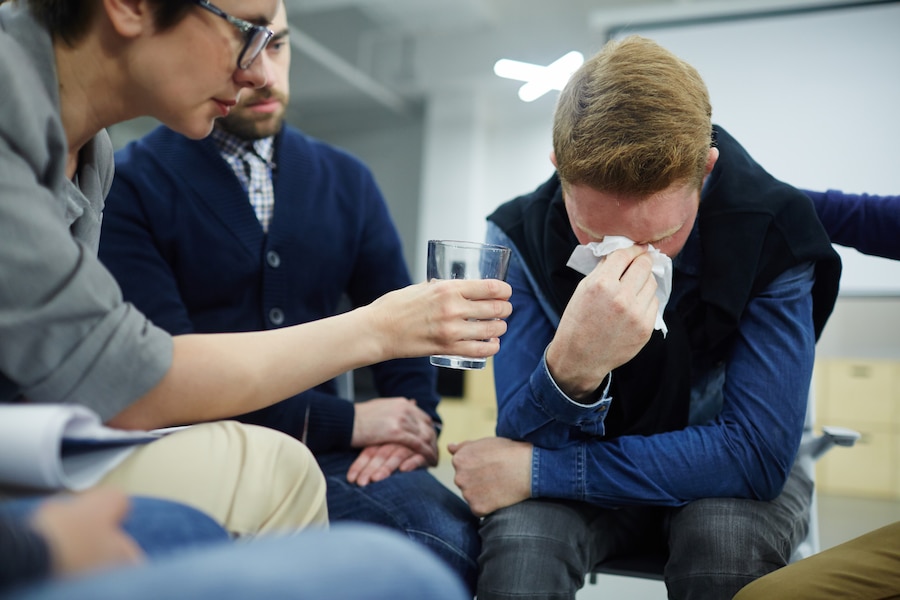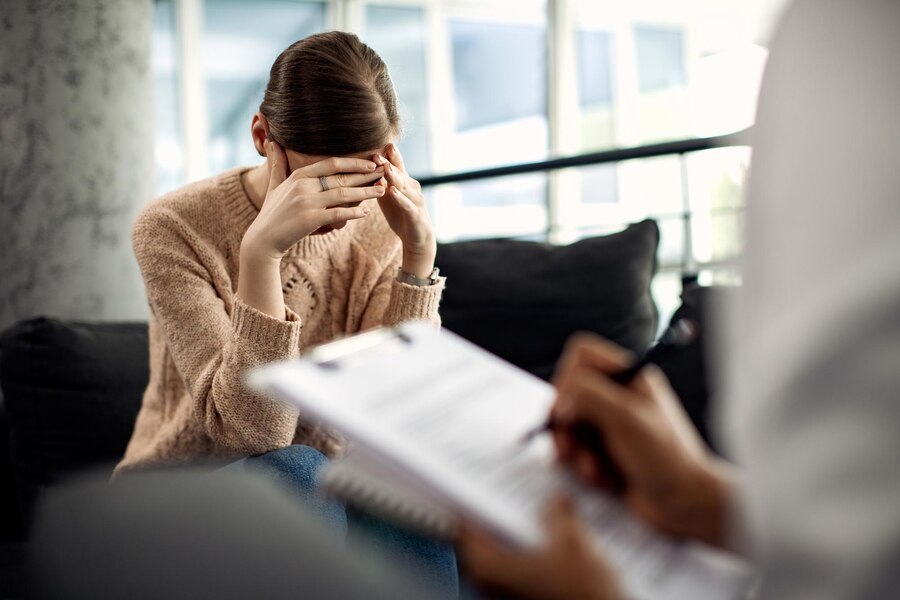Love Conquers All: Couples Rehabs’ Journey to Sobriety
In a world where addiction can tear apart relationships and families, the story of love conquering all at Couples Rehabs stands as a testament to the transformative power of love in the pursuit of sobriety. This unique journey to recovery is a beacon of hope, showcasing the resilience and strength of couples who choose to navigate sobriety together.
Couples Rehabs Services 888-325-2454
Love as a Catalyst for Sobriety: Couples Rehabs’ Narrative
The narrative of Couples Rehabs is one that centers on the profound impact of love in overcoming addiction. The journey to sobriety is often a daunting and challenging one, but when couples come together with a shared commitment to recovery, the power of their love becomes a catalyst for positive change. At Couples Rehabs, love is not just a concept; it is a tangible force that propels individuals towards healing and wholeness.
Partnering for Recovery: Couples Rehabs’ Journey to Sobriety
The journey to sobriety at Couples Rehabs is a collaborative effort, where partners support and uplift each other through the highs and lows of recovery. The program recognizes that addiction affects not only the individual but also their significant other, and therefore, the path to healing must involve both partners. By fostering an environment of mutual support and understanding, Couples Rehabs empowers couples to walk hand in hand towards a life free from the shackles of addiction.
The Transformative Power of Love in Overcoming Addiction: Couples Rehabs’ Story
At Couples Rehabs, love is embraced as a transformative force that has the potential to break the chains of addiction. The story of Couples Rehabs is one of redemption and renewal, where love becomes the guiding light in the darkest of times. Through comprehensive programs tailored to the unique needs of each couple, the facility offers a safe space for individuals to confront their struggles and emerge stronger, with love at the core of their journey to sobriety.

Navigating Sobriety Together: Couples Rehabs’ Inspiring Journey
The inspiring journey of couples at Couples Rehabs is a testament to the unwavering commitment to sobriety and the enduring power of love. As they navigate the complexities of addiction and recovery, they find solace in the unwavering support of their partners. Together, they rewrite their story, turning pain into purpose and despair into hope, all the while strengthening the bond that holds them together.
Embracing Love’s Resilience in the Pursuit of Sobriety: Couples Rehabs’ Experience
The experience of couples at Couples Rehabs is a testament to the resilience of love in the pursuit of sobriety. Through individual and couples therapy, holistic treatment approaches, and a supportive community, couples rediscover the joy of a life free from addiction. The journey is not without its challenges, but with love as their compass, they emerge stronger, equipped with the tools to face the future with courage and conviction.
Couples Rehabs’ Journey to Sobriety
Couples Rehabs stands as a beacon of hope for couples seeking a path to sobriety rooted in love and mutual support. Their narrative, journey, and experience are testaments to the transformative power of love in overcoming addiction, inspiring countless others to embrace the resilience of love in their pursuit of sobriety.Love truly conquers all at Couples Rehabs, where couples find healing, hope, and a renewed sense of purpose as they walk hand in hand towards a brighter, sober future. Get in touch with us today to begin your journey towards a stronger relationship and lasting sobriety.

- What is Couples Rehabs, and how does it differ from traditional addiction treatment centers?Couples Rehabs is a unique addiction treatment center that focuses on providing comprehensive programs tailored to couples seeking recovery together. Unlike traditional treatment centers that primarily focus on individual recovery, Couples Rehabs recognizes the impact of addiction on relationships and offers specialized programs that involve both partners in the recovery process.
- How does Couples Rehabs incorporate love into its approach to addiction recovery?Couples Rehabs views love as a powerful force that can support and motivate individuals in their journey to sobriety. The program emphasizes the importance of mutual support, understanding, and commitment between partners, recognizing that love can serve as a catalyst for positive change and transformation.
- What does the journey to sobriety look like at Couples Rehabs?The journey to sobriety at Couples Rehabs is a collaborative effort between partners, with both individuals actively participating in the recovery process. The program offers a range of therapeutic modalities, including individual and couples therapy, holistic treatments, and community support, to address the unique needs of each couple.
- How does Couples Rehabs support couples through the highs and lows of recovery?Couples Rehabs fosters an environment of mutual support and understanding, where partners can lean on each other for strength and encouragement throughout their journey to sobriety. The program provides tools and resources to help couples navigate challenges, rebuild trust, and strengthen their relationship as they work towards a life free from addiction.
- What makes love a transformative force in overcoming addiction at Couples Rehabs?Love is embraced as a transformative force at Couples Rehabs because it provides couples with the motivation, resilience, and determination to overcome addiction together. By fostering a sense of connection, purpose, and mutual support, love becomes the guiding light that leads couples towards healing and wholeness.
- How do couples rediscover joy and purpose in life through the Couples Rehabs program?Couples Rehabs offers comprehensive programs that address not only the physical aspects of addiction but also the emotional, psychological, and relational components. Through therapy, education, and support, couples learn to rebuild their lives on a foundation of love, trust, and mutual respect, rediscovering joy and purpose in their journey to sobriety.
- What are some of the challenges couples may face during their recovery journey at Couples Rehabs?Couples may face challenges such as communication issues, trust issues, and relapse triggers during their recovery journey at Couples Rehabs. However, the program provides couples with the tools, strategies, and support they need to navigate these challenges together, strengthening their bond and resilience in the process.
- How can couples access the programs offered at Couples Rehabs?Couples interested in participating in the programs offered at Couples Rehabs can reach out to the facility directly to inquire about program offerings, eligibility criteria, and enrollment procedures. The facility’s staff is available to provide guidance and assistance to couples seeking support and treatment for addiction.
- What sets Couples Rehabs apart as a beacon of hope for couples seeking sobriety together?Couples Rehabs stands out as a beacon of hope for couples seeking sobriety togetherf due to its specialized programs, emphasis on mutual support, and commitment to holistic healing. The facility offers a safe and nurturing environment where couples can explore their recovery journey together, guided by the transformative power of love.
-
How does Couples Rehabs inspire hope and renewal for couples on their path to sobriety?
Couples Rehabs inspires hope and renewal for couples on their path to sobriety by providing them with the tools, resources, and support they need to overcome addiction together. Through personalized care, evidence-based treatments, and a supportive community, couples at Couples Rehabs find healing, strength, and a renewed sense of purpose as they walk hand in hand towards a brighter, sober future.


















Recent Comments